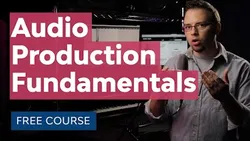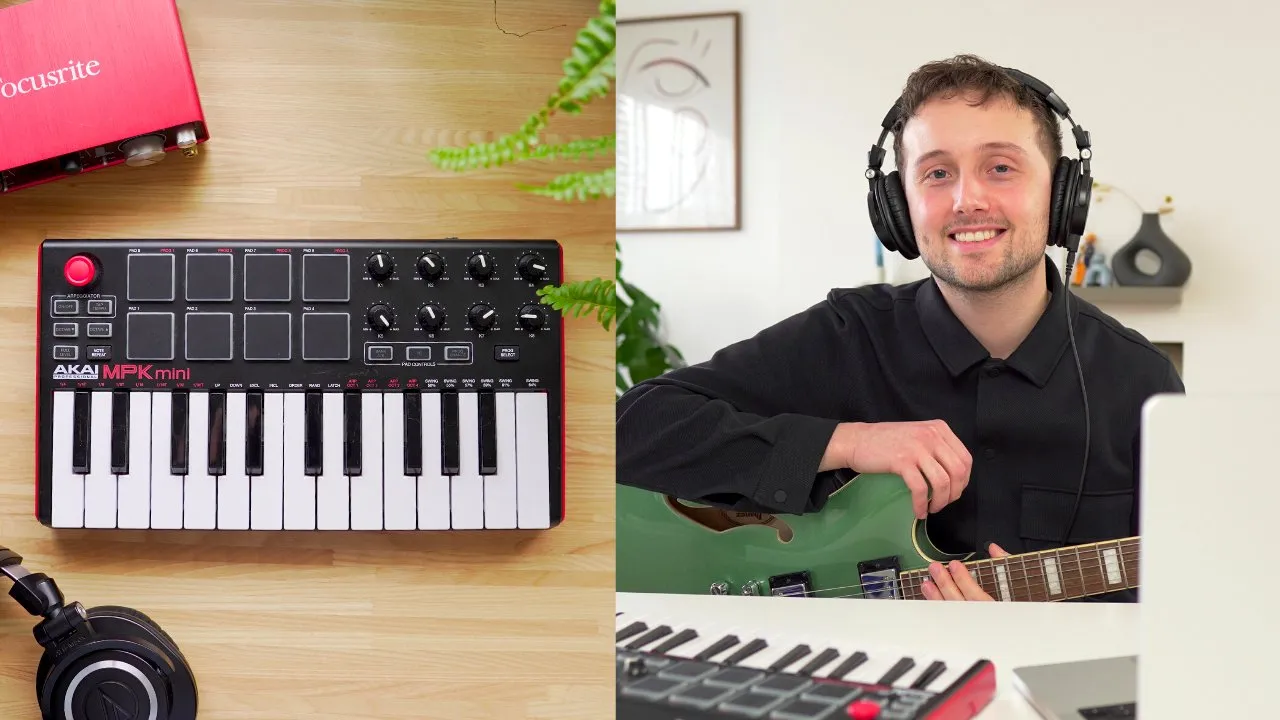
Trap Music Production: Composition and Arrangement 
K Theory, a DJ/producer duo, guides viewers through the process of creating a trap music production. They demonstrate how to use verses, arpeggios, and transitions to compose a demo, and provide tips on how to arrange the track. This 34-minute class is perfect for those looking to learn the basics of trap music production. ▼
ADVERTISEMENT
Course Feature
![]() Cost:
Cost:
Free Trial
![]() Provider:
Provider:
Skillshare
![]() Certificate:
Certificate:
Paid Certification
![]() Language:
Language:
English
![]() Start Date:
Start Date:
On-Demand
Course Overview
❗The content presented here is sourced directly from Skillshare platform. For comprehensive course details, including enrollment information, simply click on the 'Go to class' link on our website.
Updated in [February 21st, 2023]
Unlock the Exciting World of Learning! Here's What Awaits You: In this 34-minute class, DJ/producer duo K Theory will teach you how to compose and arrange a trap music track. You'll learn how to use verses and breakdowns to structure your track, add musical interest with arpeggios, and bind together the sections of your arrangement with transitions. You'll also learn how to mix-down your track to prepare it for a vocal artist. After taking this class, you'll be able to make your own track beat useable in hip hop or EDM. With a basic understanding of digital music production, you'll be able to make the most of this class and create your own trap music track.
[Applications]
After taking this course, students will be able to apply their knowledge of trap music production composition and arrangement to create their own track beats for use in hip hop or EDM. Students should have a basic understanding of digital music production and any digital audio workstation to get the most out of the lessons in this class. Additionally, students should consider taking K Theory's first Skillshare class, Trap Music Production: Drums, Baselines, and Melodies, to create their 8-bar loop.
[Career Paths]
1. Music Producer: Music producers are responsible for overseeing the production of music recordings. They are responsible for selecting and hiring musicians, arranging and composing music, and ensuring that the final product meets the desired quality standards. As the music industry continues to evolve, music producers are increasingly expected to have a wide range of skills, including knowledge of music theory, audio engineering, and music production software.
2. Audio Engineer: Audio engineers are responsible for recording, mixing, and mastering audio recordings. They use a variety of tools and techniques to ensure that the audio is of the highest quality. As technology continues to evolve, audio engineers are expected to have a wide range of skills, including knowledge of audio engineering, music production software, and sound design.
3. Music Composer: Music composers are responsible for creating original music for a variety of media, including film, television, video games, and commercials. They are expected to have a deep understanding of music theory, composition, and orchestration. As technology continues to evolve, music composers are increasingly expected to have a wide range of skills, including knowledge of music production software and sound design.
4. Music Arranger: Music arrangers are responsible for arranging existing music for a variety of media, including film, television, video games, and commercials. They are expected to have a deep understanding of music theory, composition, and orchestration. As technology continues to evolve, music arrangers are increasingly expected to have a wide range of skills, including knowledge of music production software and sound design.
Pros & Cons

Easy to adjust

Learned new trap tricks

More lessons available

Not for Reason users
Course Provider

Provider Skillshare's Stats at AZClass
Discussion and Reviews
0.0 (Based on 0 reviews)
Explore Similar Online Courses

Audio Production: Learn the Fundamentals

Gatsby - Static Site Generator Tutorial

Python for Informatics: Exploring Information

Social Network Analysis

Introduction to Systematic Review and Meta-Analysis

The Analytics Edge

DCO042 - Python For Informatics

Causal Diagrams: Draw Your Assumptions Before Your Conclusions

Whole genome sequencing of bacterial genomes - tools and applications

Orchestral Music Composition & Music Theory for Video Games

Music Theory for Songwriters: From Beginner to Producer


Start your review of Trap Music Production: Composition and Arrangement